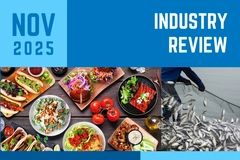
- Industry news
Industry news
- Category news
Category news
- Reports
- Key trends
- Multimedia
Multimedia
- Journal
- Events
- Suppliers
Suppliers
- Home
- Industry news
Industry news
- Category news
Category news
- Reports
- Key trends
- Multimedia
Multimedia
- Events
- Suppliers
Suppliers
Fonterra Halts Trading Amid Formula Poison Threat

11 Mar 2015 --- New Zealand dairy co-operative yesterday halted share trading after an eco-threat to contaminate infant formula with the pest control poison sodium monofluoroacetate (1080) was confirmed by local police.
The government uses 1080 as a pest control aid on its pasture but local press sources state that activists want the practice to stop by the end of March and made threats to Fonterra and Federated Farmers that it will contaminate its products if 1080’s use does not stop.
The police have launched a major investigation, while the New Zealand government has said that it thinks the threats, which date back to November 2014, are a hoax. In a statement, The New Zealand government Food Protection Office said that industry and retailers had put in place additional protection since threats were made and as a result, consumers could “continue using infant formula with confidence”.

The statement said: “We’re confident New Zealand infant and other formula is as safe today as it was before this threat was made. We encourage you to keep using formula as you always have.
“Security and safety measures for making infant and other formula have always been very strong. Since this threat was made, the government, manufacturers and retailers have worked together to put additional layers of security in place so consumers can continue using infant formula with confidence.
“This criminal threat is trying to gain a political outcome using fear. While the threat uses food as a vehicle, this is not a failure in the security of New Zealand's world-class food safety system or of any infant formula manufacturer.”
Fonterra Chief Executive Theo Spierings said the criminal threat targeted New Zealand and the entire dairy industry.
“We can fully assure our customers and consumers that all of our milk and products are safe and of high quality, and our supply chain continues to be secure and world-class. We are playing our part in helping the Government manage the criminal threat, as is the rest of the dairy industry,” he said.
“We have taken immediate and decisive steps to give our customers and consumers added confidence – including increased testing and security measures,” Spierings concluded.
Despite reassurances, sales of infant formula to China, New Zealand’s biggest export market, valued at $3.11bn, have already been affected. China, which itself has been plagued by infant formula contamination scandals, imports much of its formula due to higher food safety standards practised by Western producers. China accounts for almost one third of New Zealand’s exports of infant formula, but it is now reported that much of it has ben seized at port in Shanghai while tests are carried out.
Local news sources reported that following the announcement, China said it would increase scrutiny of milk powder imports from New Zealand, but orders are already reported to be affected by the announcement.











